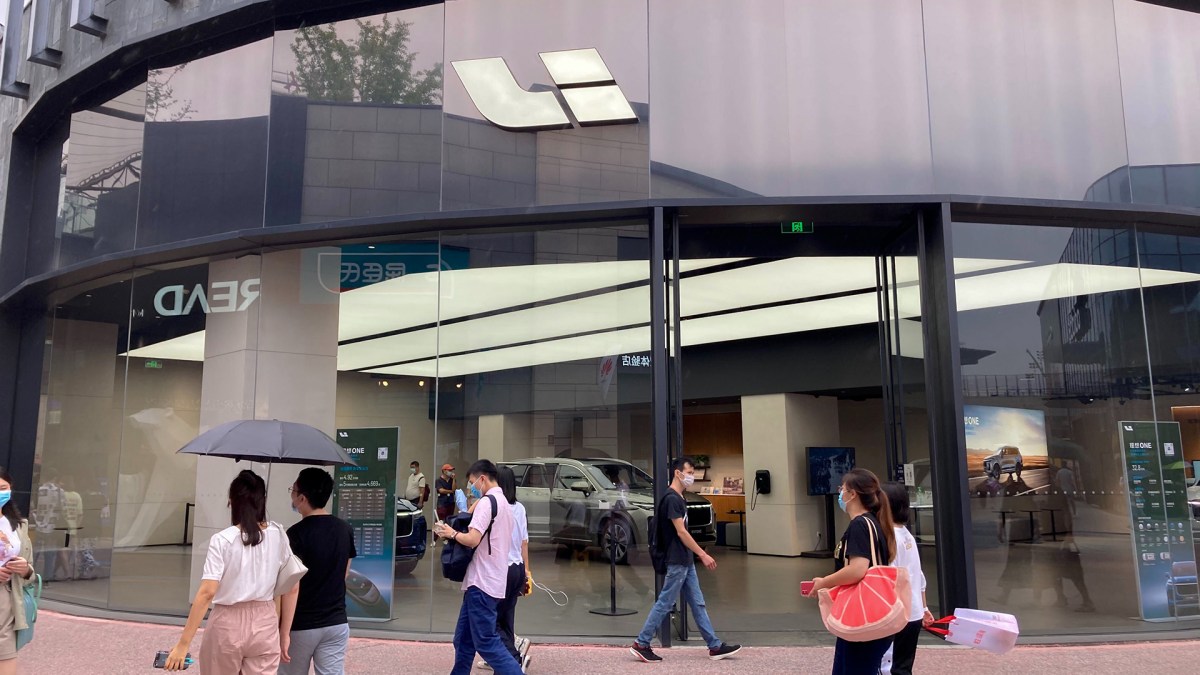Chinese electric vehicle maker Li Auto on Tuesday said it will partner with Nvidia Corp to provide its next-generation SUV with a chipset and software platform that can be used for self-driving functions.
Why it matters: The partnership is the latest in a series of Li Auto’s efforts to develop its own autonomous driving capabilities to catch up in a race led by Tesla.
- The collaboration also means that Li Auto, currently a partner of Intel’s automotive sensor company Mobileye, is switching to Nvidia for a custom-designed chip and to retain control over the development schedule.
Details: Li Auto is teaming up with Nvidia and its Chinese partner Desay SV Automotive to develop a self-driving platform based on the Orin chipset and software stack for its next large-sized premium SUV which will launch in 2022, the companies announced Tuesday.
- Li Auto will be the first automaker to use Nvidia’s newest processor to facilitate upgradeable autonomous driving functions for its EVs, ranging from assisted driving functions and eventually, vehicle autonomy, according to an announcement.
- Nvidia in 2019 unveiled Orin, its next-generation system-on-a-chip (SOC) for automobiles, capable of performing 200 trillion operations per second (TOPS) using just 45 watts. The SOC is scheduled for production in late 2022.
- Its previous generation chip, Xavier, delivers 30 TOPS and consumes 30 watts of power, was first included in Xpeng’s latest P7 sedan which it began delivering in June. The two companies formed a partnership in late 2018.
- Li Auto currently offers assisted driving functions on its first Li One model based on the Mobileye Eye Q4 vision processor, which is also deployed on Nio’s crossovers.
- Li Auto’s new technology chief Wang Kai said to Chinese media in Beijing on Tuesday that Mobileye’s data center offerings, including algorithms for vehicle perception, was “sophisticated but not open enough” (our translation), leaving limited room for self-improvement.
- The Meituan-backed EV maker recently kicked off Level 4 autonomous driving development a year ahead of schedule. It is also ramping up plans to offer a hands-off Level 3 automated navigation driving function, similar to Tesla’s Navigation on Autopilot, as early as 2021.
Context: After big cash injections from US stock markets, young Chinese EV makers are speeding up efforts to close the gap with Tesla.
- Nio raised $1.7 billion earlier this month with a follow-on share offering. The Tencent-backed EV maker plans to use part of the proceeds to enhance self-driving technologies, following the hiring of a Chinese computer vision expert to lead its AV team of 200 employees.
- Li Auto currently has 60 self-driving scientists and engineers, and is planning to triple the size to 200 by early next year, according to Chinese media reports. It appointed Wang Kai, a former global chief architect at American Tier 1 supplier Visteon, last week as CTO to lead AV development.
- Li Auto’s collaboration with Mobileye will continue—the Israeli self-driving firm makes chipsets for the automaker’s first production model, the Li One.

